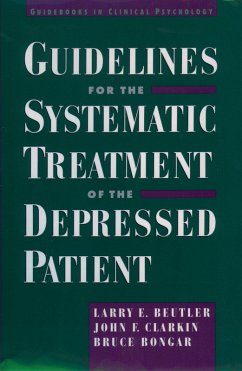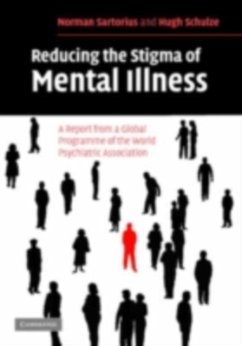
The Stigma of Mental Illness (eBook, PDF)
Models and Methods of Stigma Reduction
Versandkostenfrei!
Sofort per Download lieferbar
26,95 €
inkl. MwSt.
Weitere Ausgaben:

PAYBACK Punkte
13 °P sammeln!
Stigma is one of the major barriers to care for people with mental health and related disorders. Stigma includes negative beliefs about and hostile perceptions towards others, shame and self-stigma, discriminatory practices in hiring, promotion and recognition of people who suffer from mental health challenges, and structural and organizational policies and processes that result in inequalities for people who have mental health challenges. Stigma has been recognized as a significant factor in the well-being of people with mental health and related problems and can be more debilitating than the...
Stigma is one of the major barriers to care for people with mental health and related disorders. Stigma includes negative beliefs about and hostile perceptions towards others, shame and self-stigma, discriminatory practices in hiring, promotion and recognition of people who suffer from mental health challenges, and structural and organizational policies and processes that result in inequalities for people who have mental health challenges. Stigma has been recognized as a significant factor in the well-being of people with mental health and related problems and can be more debilitating than the direct effects of mental health problems themselves. The Mental Health Commission of Canada (MHCC) was established to conduct policy reviews and to promote initiatives related to mental health. The Opening Minds program of the MHCC is the largest systematic effort in Canadian history to reduce stigma related to mental illnesses. The program has adopted the systematic development, evaluation and deployment of targeted programs based on theories of change, best practices and available research evidence as a model for stigma reduction. The Stigma of Mental Illness is an important vehicle to communicate conceptual issues in the field of stigma reduction, to document the work done to date within the MHCC Opening Minds program, and to offer practical strategies to broaden the scope and utility of the work for different contexts, cultures, and countries. This volume will be a global interest, given the growing importance of stigma reduction related to mental disorders and related problems.
Dieser Download kann aus rechtlichen Gründen nur mit Rechnungsadresse in A, B, BG, CY, CZ, D, DK, EW, E, FIN, F, GR, HR, H, IRL, I, LT, L, LR, M, NL, PL, P, R, S, SLO, SK ausgeliefert werden.













